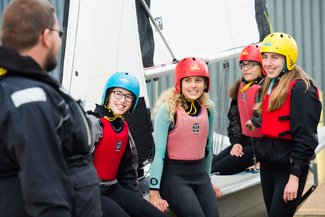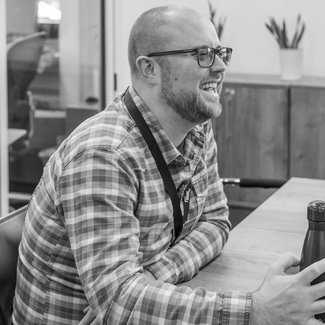With their relative agility and autonomy, island jurisdictions provide an excellent test-bed for educational innovations. Edge’s Island Education Network has long promoted the benefits of fresh approaches in island settings, so I was delighted to chair an inspiring discussion on the topic as part of Island Innovation’s Virtual Island Summit 2021. Here’s a brief overview of the innovations shared.

Isle of Wight
Cowes Enterprise College is a non-selective academy with around 1,200 students aged 11-18. Principal Rachel Kitley explained that being close to the major ports of Portsmouth and Southampton means the maritime industry plays a vital role in the local economy.
To help students explore the island’s rich maritime culture and career pathways, the college recently devised the Maritime Futures curriculum, with support from Edge’s Grant Fund. It incorporates field trips, visits to/from local maritime employers, and inquiry questions linking academic subjects to the topic. For instance, in geography: “How can maritime connect the world?” In history, students learn about the Mary Rose, while in Design and Technology they design and build yachts using offsite industry facilities to develop their skills. They support this cross-curricular, project-based approach with industry mentors and a careers portal linked to apprenticeship opportunities in the local area.

Jersey
Jersey’s economy is thriving. As its only FE college, Highlands College has links to over 170 employers. However, as Principal Jo Terry-Marchant explained, the island’s assessment-led curriculum was linked to an increase in youth mental health referrals.
With support from Edge, Highlands recently completed year one of a three-year curriculum redesign. So far, they’ve identified global pedagogical best practice that prioritises health and wellbeing, digital skills, employment and enrichment (shifting focus from the current qualification-driven approach). Highlands’ aim is to support career progression and open new pathways for students while promoting the local area as a viable option. Over the next two years, Jo expects to see major changes, including a shift towards mentoring roles for lecturers, formalisation of existing employer links, and an evolving curriculum led by student and local needs, with a global outlook.
Montserrat
From schools to government, Montserrat has recently developed its first-ever national curriculum. Lyston Skerritt (Permanent Secretary, Ministry of Education, Youth Affairs and Sports) shared the island’s journey. For the Caribbean island, the project meant getting back to basics: What should an ideal Montserrat citizen look like? Answering this involved exploring civic responsibility and sustainable development, as well as local values. His team then had to determine the best way of imparting these in academic and vocational contexts.
While the new curriculum had to incorporate national priorities, it also had to engage students using relevant pedagogies. The journey is ongoing but Lyston was clear that a new curriculum alone is no magic bullet. Whether for an island or a nation, it has knock-on effects for everything from textbooks to job descriptions, teacher resources, CPD and funding. Without considering these factors when devising a new curriculum, it will inevitably fall flat. A lesson we can all learn from.
The Azores
Rita Borges from the Oceano Azul Foundation presented a compelling case study from Portugal. Dedicated to ocean conservation, the philanthropic organisation’s flagship education programme, ‘Educating a Blue Generation’, brings ocean literacy to schools. It began in mainland Portugal and was extended to the Azores in 2019.
The ocean is core to Azorean cultural identity and the region’s sustainable ‘blue’ economy. Furthermore, the islands have a unique biosphere that requires constant preservation. To improve ocean literacy in primary schools, the programme adopts a multidisciplinary, cross-curricular approach. Teachers are the main ambassadors, requiring certified training to deliver the programme. Once qualified, schools gain access to over 50 practical activities and supplementary resources to promote relevant 21st-century skills. Since 2019, more than 330 teachers have been trained, with 5,000 students taking part across seven of the nine Azorean islands.
University of Strathclyde
Finally, Francesco Sindico (Co-Director, Strathclyde Centre for Environmental Law and Governance) presented Strathclyde’s adventure-driven sustainability education programme, Island Explorers. Adopting project-based learning places primary learners at the centre of study. Over four years, it introduces sustainability in a pupil-led, cross-curricular manner. Crucially, the programme is adaptive – while it comes with resources and activities, no two schools ever deliver it the same way, tailoring it to their needs. The goal is to encourage students to devise solutions to specific sustainability problems on their own.
Island Explorers is growing in various island settings, from the Scottish Western Isles to Greece and the Caribbean. Its pupil-led approach has even spawned new projects, including ‘Climate Change Message in a Bottle’, bringing youth voice to COP26. Ongoing evaluation and feedback improve the overall programme as it continues expanding around the world.
While these summaries can’t do justice to the sheer enthusiasm felt at the event, they offer a tantalising taste. To learn more, I highly recommend accessing the full recording of the event to hear from our five fantastic speakers themselves!

